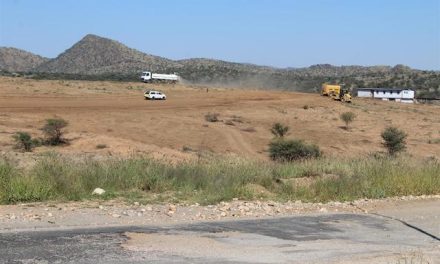
Programme for Infrastructure Development in Africa unpacks Model Law for private sector investment

The Senior Advisor and Head of the Regional Integration and Infrastructure Cluster for Economic Commission for Africa (ECA) in the Capacity Development Division (CDD), Adeyinka Adeyemi, unpacked their Model Law for private sector investment in trans-boundary infrastructure in Africa for participants at the Programme for Infrastructure Development in Africa (PIDA) Week held in Namibia.
Adeyemi said investors want predictability and reliable local partnerships respect for the rules of the game, a conducive regulatory environment and a respectable return on investment among other things.
“PIDA estimates that Africa needs up to N$93 billion annual until 2020 for both capital investment and maintenance, N$360 billion for the PIDA projects to be implemented through to 2040 and by 2025 with African countries envisaged to spend N$180 billion on infrastructure an indication of governments determination and confidence,” he added.
He infromed that if PIDA is implemented Africa will reduce electricity production costs by N$30 billion or N$850 billion, access to power will rse form 39% to nearly 70% in 2040, transport efficiencyg gains will be about N$172 billion in the African Regional Transport Integration Network (ARTIN), Intra-Africa trade shares will double from the current 125 and more than 15 million new jobs will be created in construction, operations and maintenance.
“Investment in trans-boundary infrastructure in Africa is beset by three gaint fallacies which are Africa is to risky because there are too many divergent laws, policies and regulations and that investment opportunities are scarce,” he added.
The law is expected to be adopted by African Heads of State at their January Summit in 2018 in Addis Ababa Ethiopia after which the ECA and its partner in this project, New Partnership for Africa’s Development (NEPAD), will help countries to domesticate the law to fit their needs.
PIDA covers four main sectors which are transport, energy, information and communication technology as well as trans-boundary water resources and it has 433 projects with 51 marked as priority.












































